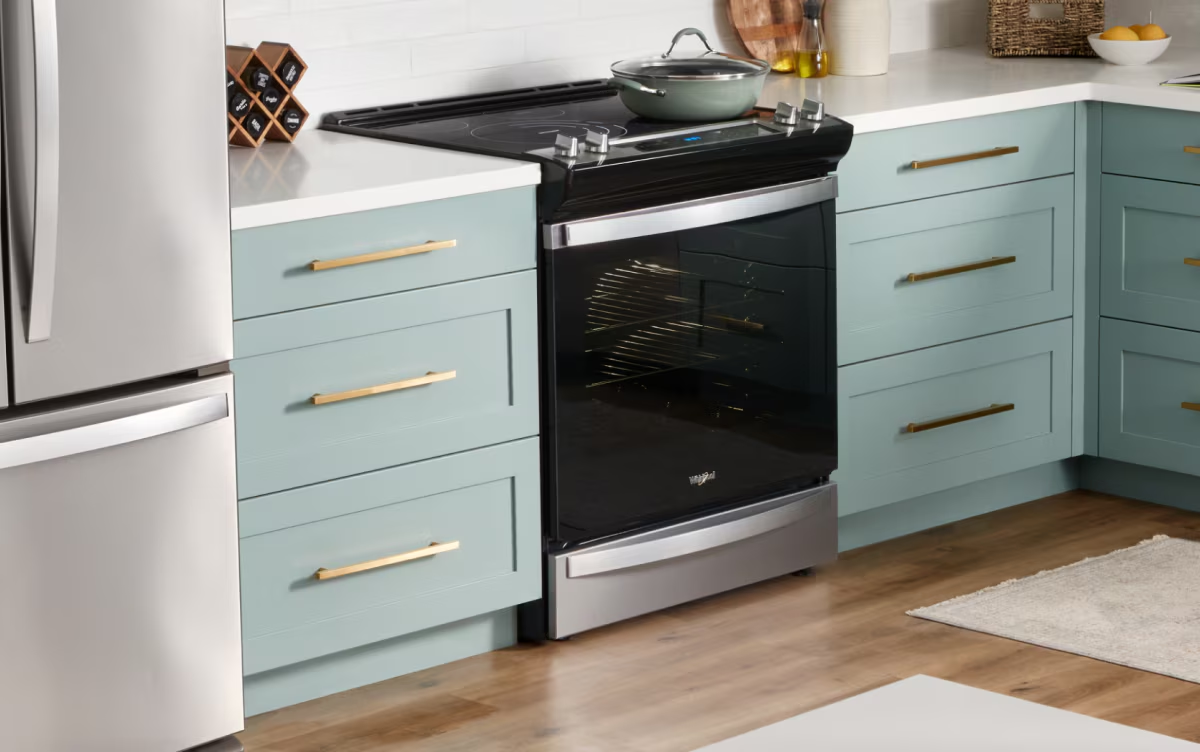When choosing a new oven, many people wonder if an electric model is the right choice. Electric ovens have some clear benefits, but they also have drawbacks compared to gas, convection, and induction ovens. This guide will help you understand the pros and cons so you can make the best decision for your kitchen.
Why Choose an Electric Oven? Key Benefits
1. Even Heating for Better Baking
Electric ovens provide steady, consistent heat from top and bottom heating elements. This makes them excellent for baking cakes, cookies, and breads without hot spots.
2. More Precise Temperature Control
Unlike gas ovens, which can fluctuate in temperature, electric ovens maintain a stable heat level, giving you more reliable cooking results.
3. Easier to Clean
Electric ovens often have smooth interiors without grates or burners, making them simpler to wipe down. Many models also offer self-cleaning features.
4. Lower Upfront Installation Costs
Since they don’t require a gas line, electric ovens are usually cheaper and easier to install, especially in homes without existing gas connections.
5. Safer for Some Homes
Without an open flame, electric ovens reduce fire risks and eliminate concerns about gas leaks or carbon monoxide.
Disadvantages of Electric Ovens
1. Slower to Preheat
Electric ovens take longer to heat up than gas ovens—sometimes 10-15 minutes compared to 5-8 minutes for gas.
2. Higher Energy Costs in Some Areas
Electricity can be more expensive than gas, leading to higher utility bills over time.
3. Won’t Work During Power Outages
If your electricity goes out, you can’t use an electric oven, whereas some gas ovens can still function manually.
4. Less Responsive for High-Heat Cooking
Electric ovens don’t adjust temperatures as quickly as gas, making them less ideal for broiling or searing meats.
5. May Have Hot Spots in Older Models
While newer electric ovens distribute heat well, some older models can have uneven heating zones.
Electric vs. Other Oven Types: Which Is Best for You?
| Feature | Electric Oven | Gas Oven | Convection Oven | Induction Oven |
|---|---|---|---|---|
| Heating Speed | Slower | Faster | Fast (fan-assisted) | Fastest |
| Temperature Control | Very steady | Less precise | Excellent | Most precise |
| Energy Efficiency | Medium | High | High | Highest |
| Best For | Baking, roasting | Searing, broiling | Even baking, multi-rack cooking | Fast, precise cooking |
| Installation Cost | Low | Medium (needs gas line) | Medium-High | High (special cookware required) |
Best Choice Based on Your Needs
- Frequent baker? → Electric or convection
- Prefer fast cooking? → Gas or induction
- Want energy savings? → Induction or convection
- Need budget-friendly? → Electric
Frequently Asked Questions
1. Are electric ovens better for baking than gas?
Yes. Electric ovens provide more consistent heat, which is ideal for baking. Gas ovens can have hot spots that lead to uneven results.
2. Do electric ovens use a lot of electricity?
They can, depending on usage. On average, an electric oven uses 2-5 kWh per hour, costing around 0.20−0.20−0.50 per hour (varies by location).
3. Can I switch from a gas oven to electric?
It’s possible but not always practical. You may need new wiring or electrical upgrades, which can be expensive. In many cases, buying a new oven is more cost-effective.
4. Do electric ovens dry out food?
Not necessarily. While gas ovens add some moisture, modern electric ovens have good seals to retain moisture, and some even have steam functions.
5. How long do electric ovens last?
With proper care, an oven can last 10-15 years. Regular cleaning and timely repairs can extend its lifespan.

